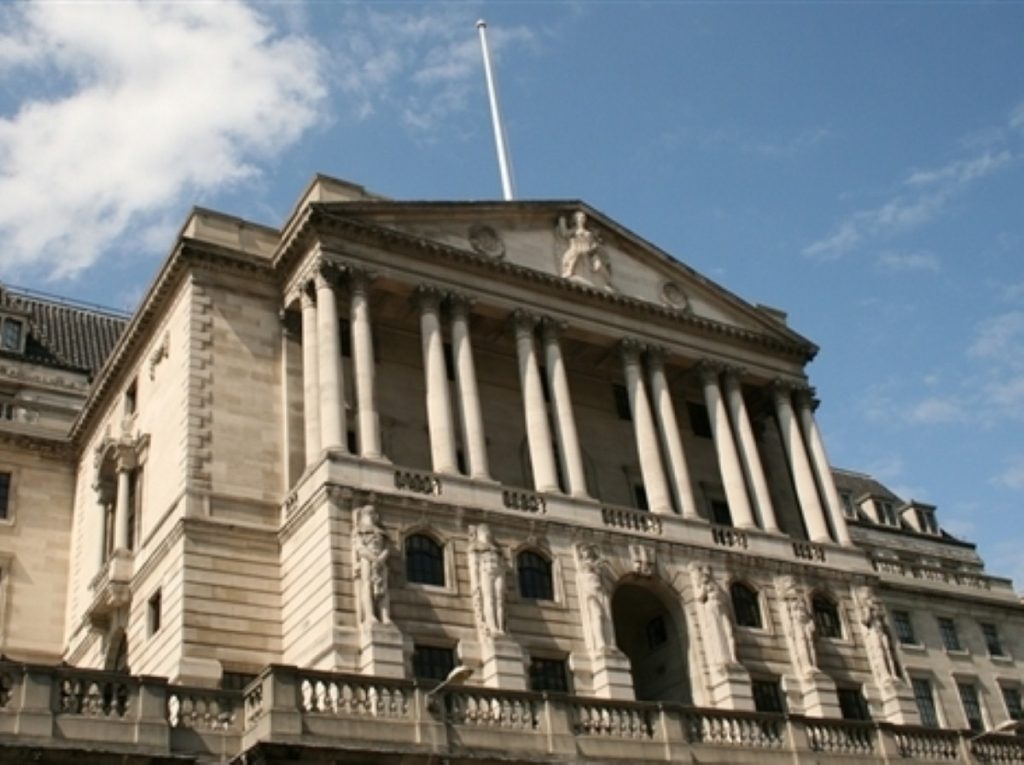Regulation powers returning to Bank of England
The Bank of England’s macroprudential regulation powers are to be restored, George Osborne has announced.
The chancellor told the Commons he intended to give the Bank its powers “in order to avoid a repeat of the financial crisis” following an urgent question in the Commons by Alistair Darling.
It comes ahead of Mr Osborne’s first speech as chancellor at Mansion House this evening, when the chancellor is expected to give more details about the future set-up of financial regulation in Britain.


He told MPs the tripartite system set up in 1997 by the New Labour government had “failed spectacularly” to prevent instability in the markets
“Unlike the last government, this government is prepared to confront the difficult challenge of the regulation and the structure of the banks,” Mr Osborne said.
“We were prepared to learn the lessons of what went wrong, even if they were not.”
The Financial Services Authority (FSA) is expected to be given control of regulating on a bank-by-bank basis, leaving the Bank responsible for monitoring the bigger picture of financial stability as the coalition government seeks to avoid the circumstances which caused the 2008 financial crisis.
Mr Osborne said the FSA would be handed responsibility for oversight of microprudential regulation, however.
According to reports the chancellor will provide a ‘toolkit’ for the Bank enabling it to manage risk in the economy, including giving it the power to restrict lending.
Shadow chancellor Mr Darling criticised the proposals for fostering uncertainty, pointing out the debate about what constitutes macroprudential regulation is far from resolved.
He warned that on microprudential regulation there could be a situation where the Bank and the FSA find themselves conflicting over how to manage banks, leading to further instability.
“Far from clarifying the situation, this is creating an additional complication,” Mr Darling said.
“The risk is a dog’s breakfast of a regulatory system where no one knows who is making decisions no one knows who is in charge.”
Mr Osborne responded: “The dividing line is between a government that wants to learn the lessons of what went wrong and an opposition that has no intention of learning from all the mistakes it made.”
The chancellor told the Commons he had appointed former Office of Fair Trading chairman Sir John Vickers as the chair of the Independent Commission on Banking, which is tasked with working out the best ways to reform the banking sector.
It follows the publication of Which?’s Future of Banking commission report at the weekend, which called for radical reform of the current structures – and a culture change forcing bankers to focus on “service” rather than remuneration.
The Unite union, which represents workers in the financial services industry, warned Mr Osborne that breaking up the banks would not prevent a future financial crisis by itself.
National officer Rob MacGregor called for “radical root and branch reform” of both the regulation and the sector itself.
“The million people employed in this sector, in branches and call centres across the country, must have their jobs protected and any reform must promote further growth of this vital industry,” he said.
The speech comes as new figures from the Office for National Statistics (ONS) showed unemployment grew by 23,000 in the first three months of 2010.
There are now 2.47 million unemployed in the UK.
The number of people claiming Jobseekers’ Allowance dropped by 30,900 to 1.48 million, however.









